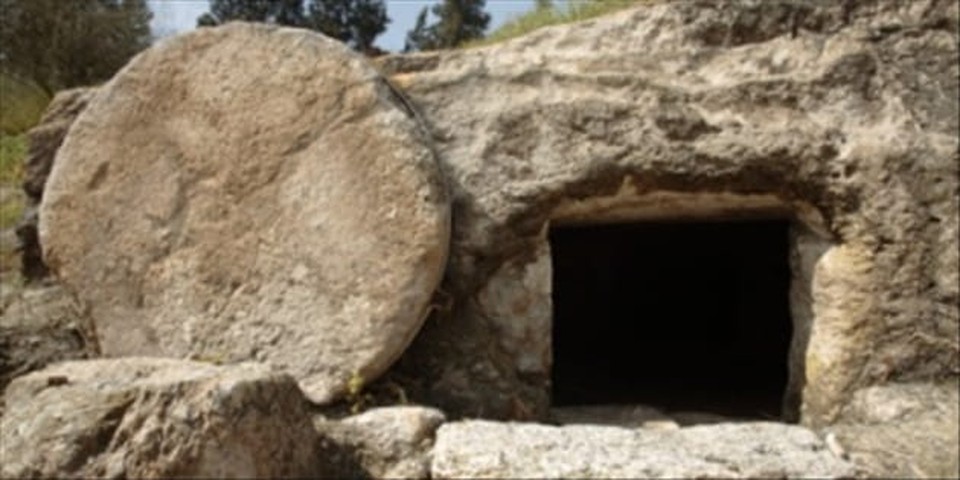The Resurrection of Jesus Christ and the Reality of the Gospel

The pattern of the Christian year is an exercise of the Church's discipline. The annual celebrations of Christmas and Resurrection Day force the Church to ponder again the truths of Christ's incarnation and resurrection.
Christians understand that every Lord's Day is Resurrection Day, but this Sunday is the festival which draws all Christians face to face with the empty tomb and the truth of the resurrected Lord.
Resurrection Sunday is the central event in the church year--the climax of worship, expectation, and celebration. This celebration is also an acid test of the Church's faithfulness and conviction.
The secular world has done its best to make a mess of Christmas, but it has largely ignored our celebration of the Resurrection. Where commercialism intrudes, it comes in the forms of eggs and chicks and rabbits--none of which claim any connection with the Resurrection. The fact is, the secular world will attempt to domesticate, commercialize, and tame the babe in the manger--but it will run at breakneck speed from the cross and the empty tomb.
That cross stands as condemnation on all human attempts at self-righteousness, and the fallen world will do all within its power to hide the cross from sight. The empty tomb is the seal and confirmation of the cross, and the world will shield its eyes.
The resurrection of Jesus Christ from the dead separates Christianity from all mere religion--whatever its form. Christianity without the literal, physical resurrection of Jesus Christ from the dead is merely one religion among many. "And if Christ is not risen," said the Apostle Paul, "then our preaching is empty and your faith is in vain" [1 Corinthians 15:14]. Furthermore, "You are still in your sins!" [v. 17b]. Paul could not have chosen stronger language. "If in this life only we have hope in Christ, we are of all men the most pitiable" [v. 19].
Yet, the resurrection of Jesus Christ has been under persistent attacks since the Apostolic age. Why? Because it is the central confirmation of Jesus' identity as the incarnate Son of God, and the ultimate sign of Christ's completed work of atonement, redemption, reconciliation, and salvation. Those who oppose Christ, whether first century religious leaders or twentieth century secularists, recognize the Resurrection as the vindication of Christ against His enemies.
Those who would attack the Church and reject its gospel must direct their arrows at the most crucial truth claim of the New Testament and the disciples: That Jesus Christ, having suffered death on a cross, though sinless, having borne the sins of those He came to save, having been buried in a sealed and guarded grave, was raised by the power of God on the third day.
As Paul well understood, Christianity stands or falls with the empty grave. If Christ is not raised, we are to be pitied, for our faith is in vain. Those who would preach a resurrectionless Christianity have substituted the truth of the gospel for a lie. But, asserted Paul, Christ is risen from the dead. Our faith is not in vain, but is in the risen Lord. He willingly faced death on a cross and defeated death from the grave. The Resurrection is the ultimate sign of God's vindication of His Son.
As John A. Broadus preached over a century ago: "It was the signed manual of the Deity, it was the seal of the Sovereign of the Universe affixed to His claim, it declared Him to be all that He had ever professed to be, and so it establishes the truth of all His teachings and the truth of the whole Christian society. The great fact that Jesus Christ rose from the dead is the central fact of the evidence of Christianity."
Evidence is Overwhelming
Believers have no reason to be defensive concerning the Resurrection. To the contrary, any denial of the Resurrection is a denial of the Savior. The biblical evidence is overwhelming.
As the disciples preached in the earliest Christian sermons, "This Jesus God has raised up, of whom we are all witnesses . . . . Therefore, let all the house of Israel know assuredly that God has made this Jesus, whom you crucified, both Lord and Christ" [Acts 2:32,36].
The Resurrection was not a dawning awareness of Christ's continuing presence among the disciples, it was the literal, physical raising of Jesus' body from the dead. The Church is founded upon the resurrected Lord, who appeared among His disciples and was seen by hundreds of others.
The Church does not have mere permission to celebrate the Resurrection, it has a mandate to proclaim the truth that God raised Jesus Christ from the dead. The resurrected Lord gave the Church a sacred commission to take the gospel throughout the world. As Paul made clear, the resurrection of Christ also comes as a comfort to the believer, for His defeat of death is a foretaste and promise of our own resurrection by His power. "For this corruptible must put on incorruption, and this mortal must put on immortality" [1 Corinthians 15:53].
So, as the Church gathers to celebrate the resurrection of Jesus Christ, we should look backward in thankfulness to that empty tomb and forward to the fulfillment of Christ's promises in us. For Resurrection Day is not merely a celebration--it is truly preparation as well. The resurrection of Jesus Christ is the promise of our resurrection from the dead, and of Christ's total victory over sin and death. The resurrection of Jesus Christ is at the very center of the Christian gospel. The empty tomb is full of power.

Originally published March 25, 2005.





